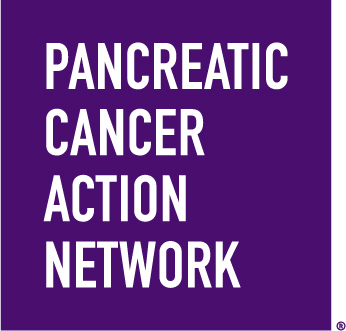Natus Medical Aktie
WKN: 578916 / ISIN: US6390501038
|
08.11.2017 19:02:00
|
Researchers Identify Clues that Explain Long-term Pancreatic Cancer Survival
MANHATTAN BEACH, Calif., Nov. 8, 2017 /PRNewswire-USNewswire/ -- A study published today in the journal Nature identified clues that may explain long-term pancreatic cancer survival.

Researchers analyzed the immune profile of 150 pancreatic cancer patients and found that those who survived more than three years post-surgery had both high numbers of neoantigens (proteins that stimulate an immune response) on their tumor and a high number of "killer" T-cells infiltrating the tumor.
"These 'killer' T-cells have the capability of recognizing and attacking the tumor," said Lynn Matrisian, PhD, MBA, chief science officer at the Pancreatic Cancer Action Network (PanCAN), who is not affiliated with the research study. "Whereas these cells are blocked from entering the tumor in most pancreatic cancers, this new study adds to the evidence that patients whose tumors allow T-cell infiltration have improved outcomes."
Results will help improve the design and strategy of immunotherapy efforts for patients – both for those with higher levels of neoantigens and T-cells and for those with lower levels – and will shed light on possible new treatment options, including immunotherapies and personalized cancer vaccines.
"Our work may help establish upfront which patients may benefit from certain types of immunotherapy, such as checkpoint blockade," said co-senior author Steve Leach, MD, director of the Norris Cotton Cancer Center at Dartmouth, a 2015 PanCAN Research Acceleration Network (RAN) Grant recipient and member and immediate past chair of PanCAN's Scientific and Medical Advisory Board.
The study was funded in part by the Pancreatic Cancer Action Network. Authors Douglas Fearon, MD, andChristine Iacobuzio-Donahue, MD, PhD, are also PanCAN grantees, and first author Vinod Balachandran, MD, is a member of PanCAN's Precision PromiseSM Immunotherapy Working Group.
Pancreatic cancer is the deadliest major cancer with a five-year survival of only 9 percent. The disease is currently the third leading cause of cancer-related death in the United States and it is estimated it will become the second leading cause around the year 2020.
Learn more about the Pancreatic Cancer Action Network's research impact and follow the organization on Twitter, Instagram and Facebook.
Citation: Nature, "Identification of unique neoantigen qualities in long term pancreatic cancer survivors." November 8, 2017.
About the Pancreatic Cancer Action Network
The Pancreatic Cancer Action Network (PanCAN) is dedicated to fighting the world's toughest cancer. In our urgent mission to save lives, we attack pancreatic cancer on all fronts: research, clinical initiatives, patient services and advocacy. Our effort is amplified by a nationwide network of grassroots support. We are determined to improve patient outcomes today and to double survival by 2020.
Media Contact:
Michael Rosen
Chief Communications Officer
Pancreatic Cancer Action Network
Email: mrosen@pancan.org
Direct: 646-844-1227
View original content with multimedia:http://www.prnewswire.com/news-releases/researchers-identify-clues-that-explain-long-term-pancreatic-cancer-survival-300550411.html
SOURCE Pancreatic Cancer Action Network
 Der finanzen.at Ratgeber für Aktien!
Der finanzen.at Ratgeber für Aktien!
Wenn Sie mehr über das Thema Aktien erfahren wollen, finden Sie in unserem Ratgeber viele interessante Artikel dazu!
Jetzt informieren!
Nachrichten zu Natus Medical Inc.mehr Nachrichten
| Keine Nachrichten verfügbar. |